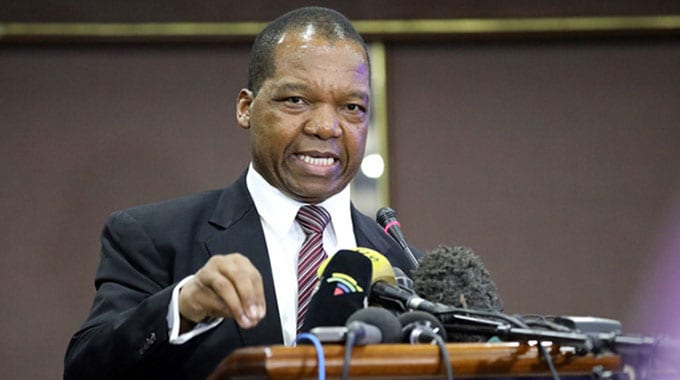The Reserve Bank of Zimbabwe says it will maintain “a tight” grip on monetary policy over the next half-year to try and bring inflation under control.
In his latest monetary policy statement released Thursday, Mangudya said he expects inflation to rise even further in the near term.
The RBZ has kept rate steady at 200% – despite inflation of 257% – in the hope that prices will slow down towards the end of the year.
There were no major policy changes in the latest policy.
Highlights:
RBZ has so far allocated US$3.43 billion on the currency auction since it was launched in 2020. But backlogs have eroded confidence in the platform.
RBZ says it plans to clear a backlog of US$169 million. Mangudya gave no timeline, only saying he plans to do this “within a short space of time”.
Mangudya has abandoned his rhetoric that the auction was meant to “discover” the right exchange rate. He now admits that the platform is now only a system to allocate forex.
Mangudya said: “In this context, the foreign exchange auction system is no longer a price discovery mechanism but instead the most ideal allocative platform of foreign currency in the domestic economy given the geo-political constraints facing the local banking industry to establish an efficient interbank foreign exchange market.”
Forex receipts rise on mineral prices
Zimbabwe earned US$5.45 billion in foreign currency between January and June, 33.6% better than in the same period last year.
Merchandise exports increased by 33% to US$3.5 billion in the first half of 2022, from US$2.6 billion last year.
Mangudya said this was largely due to better gold prices, tobacco, and an increase in manufactured exports. Minerals made up the bulk of exports, growing by 32% to US$2.9 billion.
International remittances were US$1.372 billion. Of this amount, Zimbabweans abroad sent home US$797 million over the six months, 23% more than at half-year in 2021.
According to the RBZ boss, forex-denominated loans now make up over half of all loans in the economy. Under financial sector rules, banks must hold on to a part of their deposits as a “liquid asset buffer”.
From September, statutory reserve requirements will also apply to forex loans, at 5% for call deposits and 2.5% for time and savings deposits.
Higher limits for forex bureau transactions
The limit for people buying and selling forex through bureau de change is now US$5000 per transaction per month from US$500 per week.
This is for transactions for medical expenses, educational expenses (including student upkeep), business and holiday travel, airfares, and subscriptions.
The limit for transactions on the willing-buyer willing-seller platform goes up from US$10 000 to US$20 000 per transaction per week.
Coining it: more gold coins on the way
He said the RBZ will introduce more gold coins in November. These will be in units smaller than the one-ounce coin issued in July.
The new coins will be in smaller units of a tenth ounce, a quarter ounce and half an ounce.
RBZ says the coins have been a success so far “as an alternative stable investment product for store of value and mopping up excess liquidity from the economy”.
So far, RBZ has sold 4475 gold coins for a total of ZW$3.7 billion, 90% of which was paid for in Zimdollars.
Inflation to keep rising, for now
RBZ expects inflation to keep rising in the short term, coming off the lower base in 2021.
RBZ blames inflation on the combination of “adverse inflation expectations and exchange rate depreciation” at home, and the impact of global price increases in fuel, raw materials and food.
The bank also points to government spending as a source of inflation.
“The concomitant action taken by Government to put in place value for money measures that dissuade its suppliers of goods and services from manipulating the exchange rate through forward exchange rate pricing system is therefore critical to contain inflation, especially given the significant purchasing power of Government in the economy of around 70%.”
Government has recently cancelled payments to its suppliers, saying their inflated invoices for public contracts are stoking inflation.














